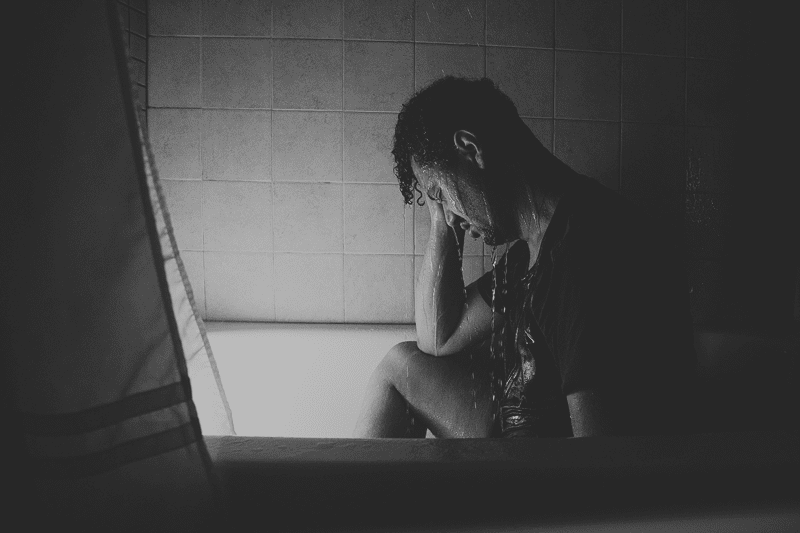“3,2,1, action!” Actors across the globe hear this count down and immediately spring into their roles. On the big screen, these professionals are responsible for bringing our fantasies to life. We want to talk like them, we want to dress like them, and most of all, we want to look like them. It is no secret that people idolize celebrities. We use them to set our own standards for success. Unfortunately, we often do so without truly accepting ourselves.
Self-improvement is great. The notion that we should remain the same without ever-growing is preposterous. Even on a cellular level, humans are constantly changing, so why shouldn’t we grow intentionally? However, before attempting to change, it helps to be introspective.
According to betterhealth.vic.gov, low self-esteem is characterized by ignoring one’s positive qualities. There is nothing wrong with admiring the positive traits another person has, but we should never compete with others in this way. Instead, we should compete with the person we see in the mirror every morning. Everyone has his or her own journey and a set of circumstances that go along with it. The only way to improve is to set realistic goals for your own set of circumstances.
One of the most common traits we tend to cast judgment on is personal appearance. Unconsciously we believe that attractive people are more trustworthy, and as a result, we often accord them different benefits. We’re all aware of this, and we often do certain things to improve our own looks. I have personal experience with this, as I’ve lost over 200 pounds in my life in an attempt to improve my health and level of attraction. This is where self-esteem comes into play.
There is nothing inherently wrong with changing one’s physical appearance. The issue is why one decides to alter one’s appearance. It is impossible to be someone else, but it’s undoubtedly possible to become a better version of yourself. There is, however, a fine line between self-improvement and low self-esteem. On my own journey, I found another line, the one between low self-esteem and body dysmorphia.
Fortunately, we have begun to place more value on the study of mental health. There are still misconceptions even though studies suggest one-in-five US adults will struggle with their mental wellbeing. Language has been a contributing factor to these misconceptions.
When was the last time that you heard the phrase, “I have ADHD, I can’t sit still,” or, “I’m so depressed about this test!” While it is possible for people who experience mental illness to have certain triggers, real mental health disorders are often so much harder to live with than we acknowledge. Body dysmorphia is not low self-esteem, but just as sadness and depression resemble each other, so do low self-esteem and body dysmorphia.
It is necessary to differentiate between the two because the symptoms and treatments are different. Body dysmorphic disorder (BDD) is defined as a serious illness in which a person is obsessed with minor or imaginary physical flaws. It is important to emphasize the words obsessed, minor, and imaginary.
Often these “flaws” are so insignificant that no one else notices them. Sometimes, the flaws do not exist and are only illusions cast by one’s own mind. BDD has the potential to affect one’s social and work life. Some avoid interacting with others, some pursue expensive and dangerous surgeries, and some avoid eating or exercise to the point of serious injury. This disorder has driven people to drug addiction, depression, and even suicide.
Both low self-esteem and BDD are dangerous if left untreated. It is important to respect mental health just as we value our physical health. If you are concerned about your mental health, then the best course of action is to seek professional help. Professional treatment often includes a combination of psychotherapy and antidepressants.
If you feel uncomfortable with seeking professional help, then share your struggles with friends and family. Social isolation feeds depression. Humans are social creatures by nature, and it is vital to talk to people we trust.
If you know someone who may be facing low self-esteem or body dysmorphia, it is essential to express your concern and offer support. Remind friends or family members that help is available, but if they are not an immediate danger to themselves or others, be mindful of their space.
If you or someone you know experiences mental health issues, it is important to seek help from a qualified professional. Our Resource Specialist can help you find expert mental health resources to recover in your community. Contact us now for more information on this free service to our users.
About the Author: Fredrick Little is a freelance healthcare blogger and copywriter. He is currently a student of biology and biomedical engineering attending North Carolina A&T. He has a passion for fitness inspired by his own 100+ pound weight loss journey. Fredrick wants to make the world a better place, one post at a time.
Image by KLEITON Santos from Pixabay
The opinions and views expressed in any guest blog post do not necessarily reflect those of www.rtor.org or its sponsor, Laurel House, Inc. The author and www.rtor.org have no affiliations with any products or services mentioned in the article or linked to therein. Guest Authors may have affiliations to products mentioned or linked to in their author bios only.
Recommended for You
- How a Health Cleanse Can Reset Your Body and Mind - April 16, 2025
- The Truth about Relapse in Addiction Recovery - April 14, 2025
- The Power of Peer Support in Mental Health Recovery - April 10, 2025





